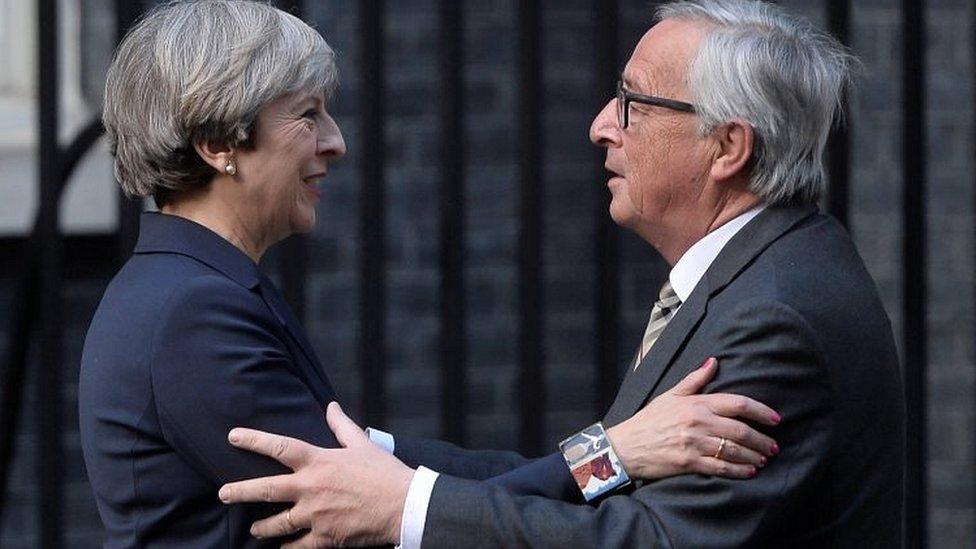EU and UK: Galaxies apart over Brexit?
- Published
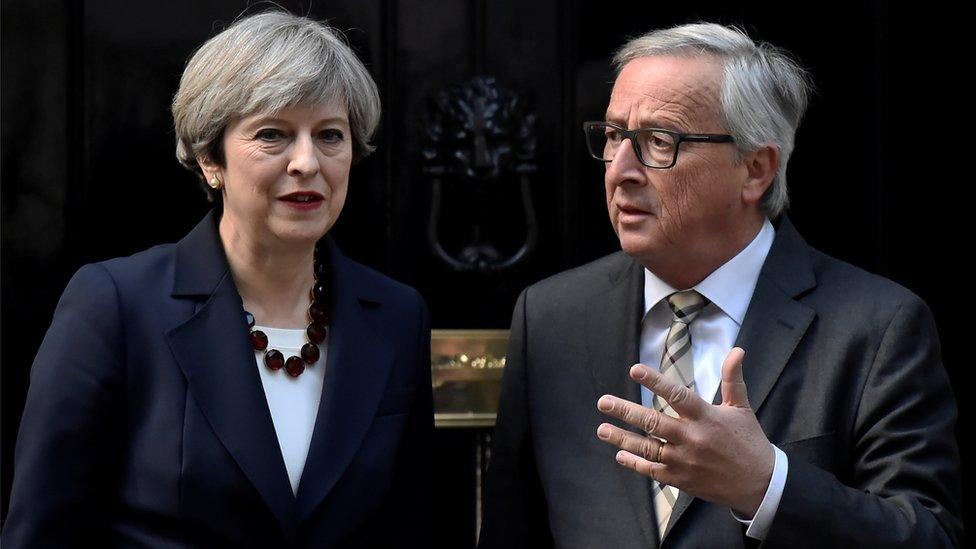
Two entirely different tales emerged from dinner at Downing Street
Welcome to the EU/UK dominated Brexit Galaxy of Spin and Counter-Spin. A crazy old place. The galactic atmosphere is such these days that the dimensions of truth are elastic; at times, distorted.
Take the arguments this weekend over whether the Downing Street dinner last Wednesday at which Theresa May hosted European Commission President Jean-Claude Juncker was a complete disaster or not.
Not at all, insists Downing Street.
But it was a fiasco, according to Germany's Frankfurter Allgemeine Zeitung and thereafter hitting Twitter and headlines across the UK.
In Brussels, Politico quotes an EU diplomat saying the dinner went "badly, really badly". He reportedly went as far as to claim the British government was now "living in a different galaxy" to the EU when it came to Brexit expectations.
This all seems rather inflammatory, so who's right and who's stretching the truth?
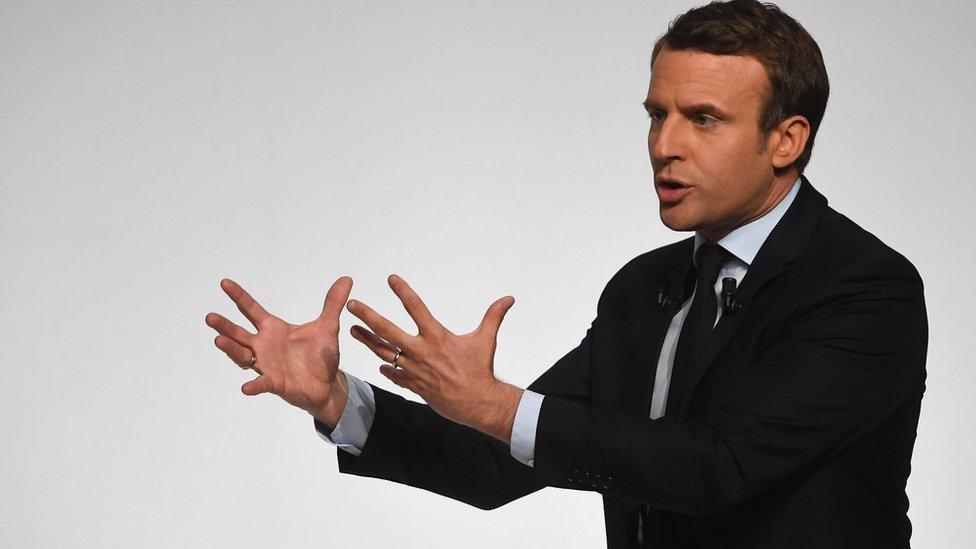
Even French presidential candidate Emmanuel Macron has been talking Brexit
Well, in this politically volatile pre-Brexit negotiations time, ahead of elections in biggest players UK, Germany and France and with the EU as a whole fighting to appear united, relevant and strong, one has to be extremely spin-aware.
For example, German Chancellor Angela Merkel talked last week about the UK harbouring Brexit "illusions". And French presidential favourite Emmanuel Macron announced he would, post-Brexit, end the bilateral deal by which France keeps in Calais so-called "illegal migrants" attempting to cross to Dover.
But these tough-sounding comments are at least as much aimed at their domestic audience as at the British government.
That said, a high-level EU source has confirmed to me that feelings were running pretty high following the Downing Street dinner due to what he described as a huge "asymmetry of expectations" and a "completely different reading" of the Brexit situation at No 10.
Theresa May said the report was "Brussels gossip"
He said the British government, from their comments about negotiations, clearly had "no good understanding of the fundamentals" around which he said the EU was united, and which would now not be undone.
There are certainly obvious sticking points where the EU and UK do seem a galaxy or two apart:
Downing Street keeps insisting on parallel divorce and future trade talks from the offset
The British government also suggests, I'm told, that a deal on EU citizens' rights can be rapidly reached (by the time of the EU leaders' summit this June)
And it doesn't seem to accept Brussels' assertion that the UK has a sizeable bill of outstanding financial commitments to honour before it leaves the EU.
Poppycock, says a frustrated EU, to all of the above.
My source told me Mr Juncker was already vexed when he arrived at No 10 on Wednesday having only just been informed of the UK's (legally justified, but awkward) decision not sign the mid-term review of the EU's multi-annual budget until after the June elections.
The review needs unanimous approval to go ahead. It doesn't call for more cash but rather its redistribution. The EU is anxious to send money Africa-wards, for example, to halt the flow of migrants coming from there.
But the review is frozen until the UK signs it.
"They gave Juncker no warning at all and told him the night before he came to dinner," my source told me. "They have no idea how Brussels works."
Another high-level source I spoke to attended a meeting with all the EU team present at the Downing Street dinner.
"The word 'échec' (French for 'failure') came up several times," he told me.
"Before that the word wasn't used very often in connection with Brexit but now we're told we have to prepare for the possibility of a failure scenario."
What percentage chance of a successful outcome was being projected in EU leadership circles at the moment?
"50/50 with hopes for more clarity after the British elections are over," I was told.
Over and again, EU diplomats insist this is no "us against them" situation; that there's no desire to punish Britain and that a good Brexit is in everyone's interest.
"It's in our mutual interest to correct all the misunderstandings," I was told today. My source was confident that Downing Street was beginning to realise that now too.
Or are we still in the galaxy of spin?
- Published30 December 2020

- Published1 May 2017
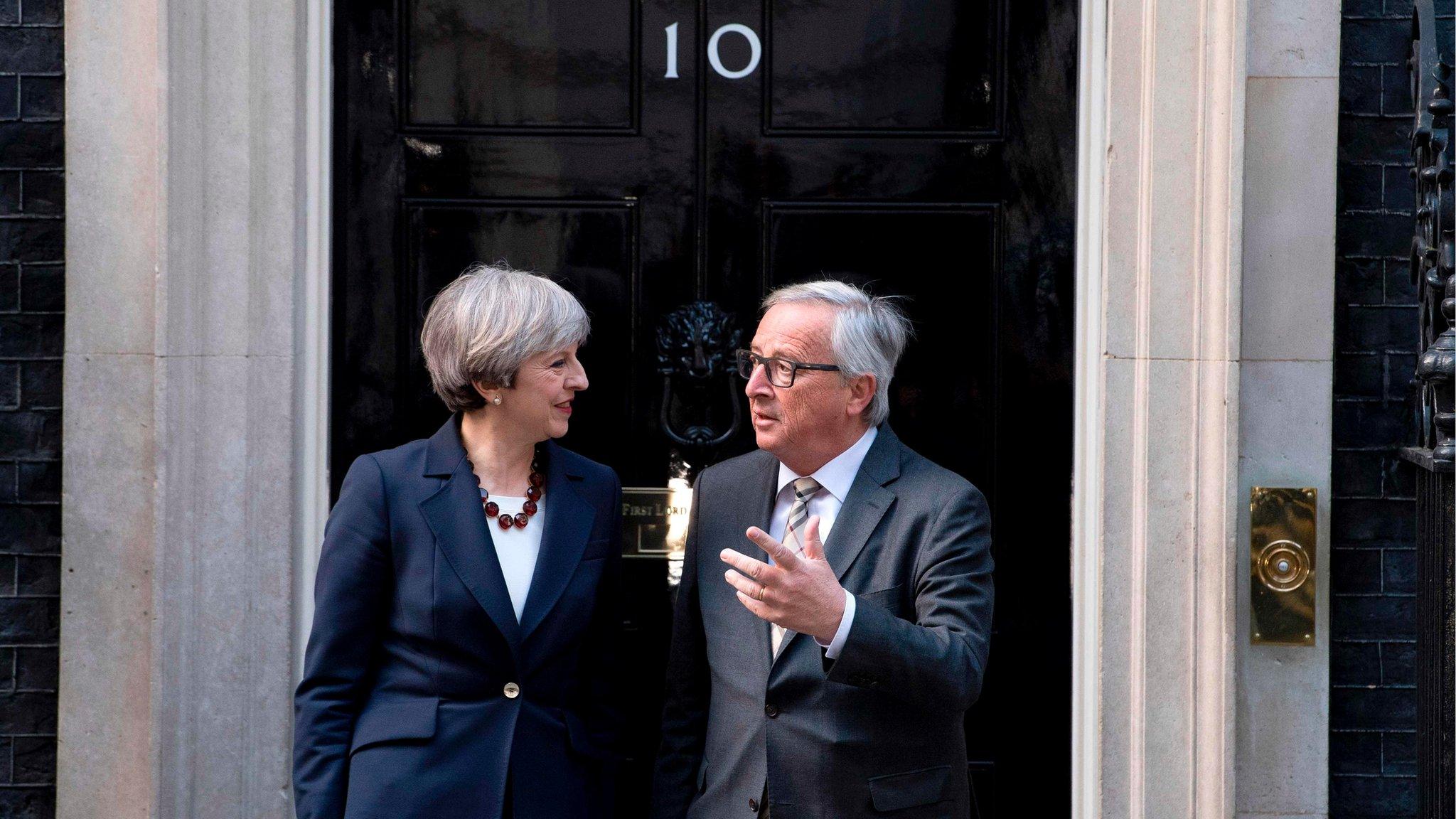
- Published1 June 2017
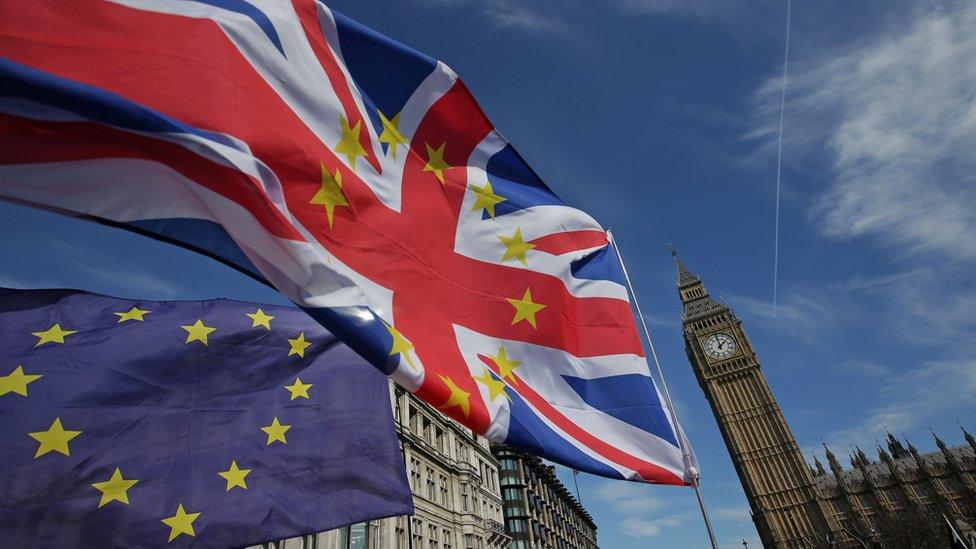
- Published1 May 2017
